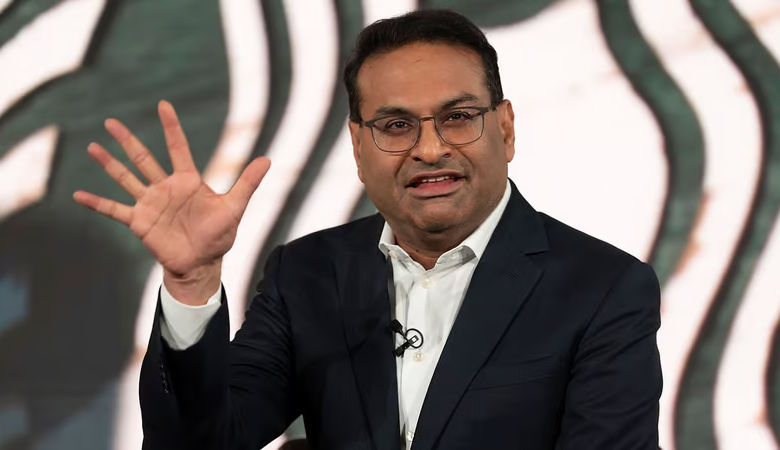Starbucks Removes Indian-Origin CEO Laxman Narasimhan After Brief Tenure

News Mania Desk/Agnibeena Ghosh/14th August 2024
In a surprising move, Starbucks has dismissed its Indian-origin CEO, Laxman Narasimhan, just 18 months after his appointment. The coffee giant announced Narasimhan’s departure on Tuesday, revealing that he is stepping down as both CEO and a board member with immediate effect. Brian Niccol, the CEO of Chipotle, will take over the role starting September 9, 2024, with Starbucks CFO Rachel Ruggeri serving as interim CEO until then. Mellody Hobson, the board chair, will assume the role of lead independent director.
Narasimhan’s abrupt exit has been met with significant market reactions. Following the news, Starbucks’ shares surged by 24 percent, marking their largest intraday gain ever and adding over $20 billion to the company’s market capitalization. The sharp increase in stock value indicates a positive market response to the leadership change, though it also highlights the turbulence during Narasimhan’s tenure.
Narasimhan, who hails from Pune, Maharashtra, and holds degrees from prestigious institutions including the College of Engineering, Pune, and The Wharton School, had a distinguished career before joining Starbucks. He began his career at McKinsey & Company, moved on to PepsiCo where he served as CEO of the South America division, and then led Reckitt, a UK-based consumer health firm. His impressive resume led him to Starbucks in March 2023, where he was expected to lead a major transformation of the company.
Despite his credentials and the high expectations placed on him, Narasimhan’s tenure at Starbucks has been marred by several challenges. The company experienced a significant decline in its global performance, with its shares dropping 20 percent earlier in the year and consecutive quarters of declining comparable sales. Additionally, Starbucks faced controversies, including backlash related to the Israel-Palestine conflict and internal labor disputes.
Speculation about Narasimhan’s ouster suggests that these issues, combined with activist investor pressure, may have contributed to his departure. Activist investors, such as Elliott Investment Management and Starboard Value, which had acquired a substantial stake in Starbucks, had been pressing the company to improve its share price and operational performance. Neil Saunders, managing director at GlobalData, noted that dissatisfaction among investors and a perceived lack of innovation and improvement in store experience were significant factors behind the leadership change.
Narasimhan’s strict work-life balance, including his preference to leave work by 6 pm, was also scrutinized following his departure. Critics on social media have pointed to his approach to work-life balance as a possible factor in his removal, although this remains speculative.
With Brian Niccol poised to lead Starbucks, the company is hopeful for a turnaround amidst the evolving market conditions. Mellody Hobson expressed confidence in Niccol’s leadership, highlighting his proven track record in driving innovation and growth.
The sudden departure of Laxman Narasimhan underscores the high stakes in executive roles within major corporations and the impact of leadership on a company’s market performance and internal dynamics. As Starbucks transitions to new leadership, all eyes will be on the company’s ability to navigate its challenges and reinvigorate its global operations.






